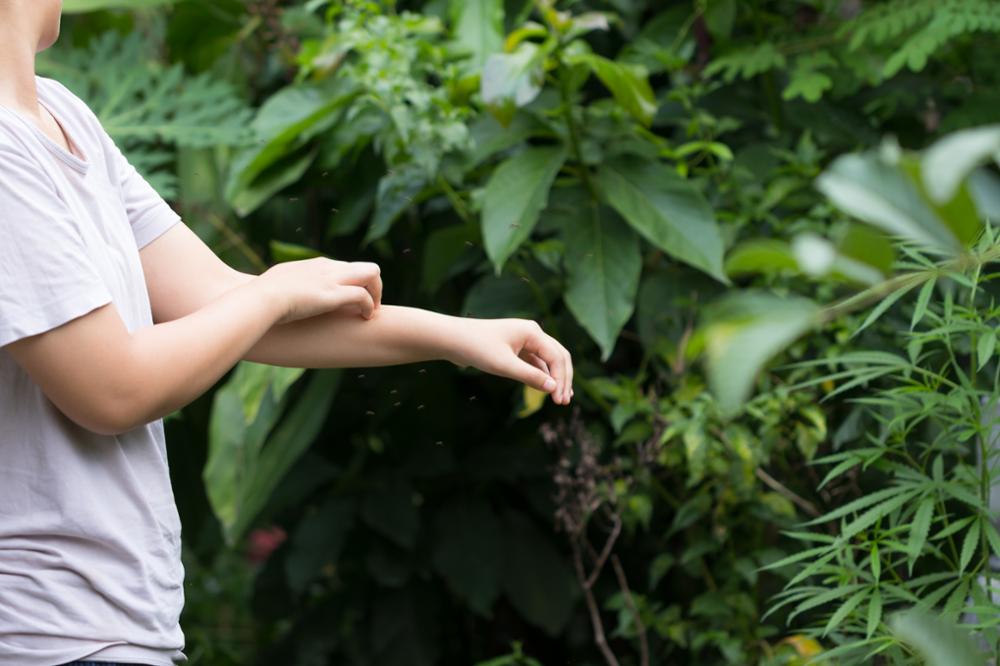
Dengue, the mosquito-borne disease in Thailand
Who said small creatures couldn't harm bigger ones? A viral disease transmitted by mosquitoes, dengue is a true scourge in Thailand! Let's review the symptoms of this disease and provide you with all our recommendations to avoid catching the virus!
A small creature, big symptoms…
Dengue is an arbovirus, as it is transmitted from mosquitoes to humans. This viral disease can manifest in four serotypes (DEN-1, DEN-2, DEN-3, and DEN-4). Its incubation period ranges from 3 to 15 days, and recovery can take much longer. The most common symptoms resemble those of a flu-like syndrome: extreme fatigue, fever, muscle pain, headaches, nausea, vomiting, diarrhea, and sometimes skin rashes…
In severe cases, dengue can progress to dengue hemorrhagic fever. In addition to persistent fevers, victims may experience internal and/or external bleeding. While recovery is often possible in the most serious cases, complications can develop and be fatal for individuals who have previously contracted another type of dengue, known as 'dengue shock syndrome'. It's also worth noting that there is a form of dengue without symptoms. As the name suggests, the virus can go unnoticed!
In any case, it's crucial to seek medical attention promptly at the first sign of doubt. Detecting dengue early reduces the risk of developing complications. Remember, fatal cases are often linked to a late diagnosis!
A viral disease is spreading

Once limited to Southeast Asia, dengue continues to spread. In Thailand, the issue is so pressing that the mosquito vector for dengue has reportedly mutated. Studies indicate that the dengue transmission period has extended. Therefore, mosquitoes are gaining ground outside the rainy season as they adapt increasingly to dry conditions. These are some of the reasons behind the alarming increase in dengue cases in Thailand in recent months.
Last June, authorities even reported that the number of dengue cases in Thailand was twice as high as the previous year. For perspective, approximately 20,000 dengue cases were recorded between January and June 2019!
How to prevent it?
Unlike other mosquito-borne viral diseases, there is no preventive treatment for dengue. The only way to avoid it is to protect yourself from mosquito bites. Here are our recommendations:
Wear protective clothing such as long-sleeved shirts and pants, especially during sunrise and sunset.
Apply mosquito repellent to exposed skin areas. You can also use repellents for clothing.
Use a mosquito net at night, and remember to close it before 6 p.m. A fan is also effective in disrupting insect flight!
Use special outdoor repellents like coils or natural alternatives (essential oils, cloves, etc.).
Avoid stagnant water, as it is a breeding ground for mosquitoes!
Avoid high-acid secretion foods like potatoes, bread, or very salty products that attract mosquitoes.
Opt for foods that deter mosquitoes, such as garlic, lemon, chili peppers, rosemary, basil, or citrus fruits. Locals also claim that bananas are effective. Of course, simply consuming these foods won't suffice to avoid mosquito bites, but they are an additional measure to keep them away!
Important note:
If you experience dengue symptoms, drink plenty of fluids to prevent dehydration. Your doctor can provide appropriate medications to alleviate your symptoms, but remember, it's strongly advised against taking aspirin as it may cause severe bleeding.
For more information on dengue, visit the Institut Pasteur website at https://www.pasteur.fr/fr/centre-medical/fiches-maladies/dengue
Florine Dergerlet
